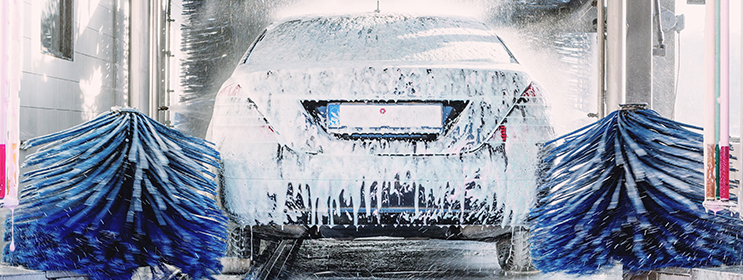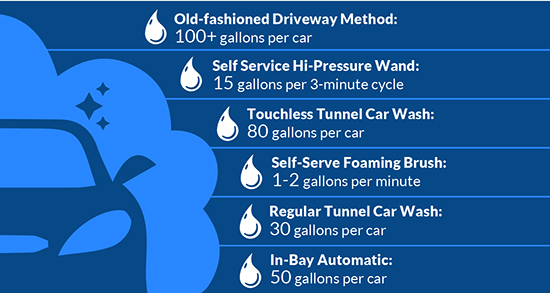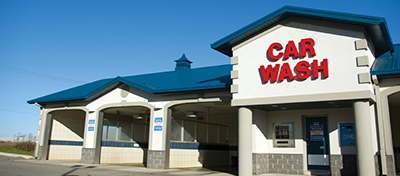

Fewer and fewer of us nowadays are enjoying the experience of washing our car in our own driveway on a Saturday morning. It was a first car owner's ritual; soaping up the car with a big sponge and rinsing it off with the garden hose. Before we all assume it's the youth of today not wanting to put in a little hard work and elbow grease, we should realize . . . that's only part of the problem. The main issue is the waste water run-off from these seemingly harmless chores. That sudsy water running off your driveway into the street is called nonpoint runoff and it is the leading cause of fresh water nonpoint source (NPS) pollution in the United States. And, it is causing many states and communities to ban the once typical suburban activity.
The issue is NPS works its way into the street and storm drains and finds its way into fresh water supplies – ultimately impacting the ecosystem for fish and other water inhabitants with chemicals or small metal particles that wash off cars, such as brake dust.
This isn't news to the commercial car wash industry. They have been working to be environmentally friendly for many years. There are several types of car washes—Tunnel Wash Systems, Automatic In-Bay Wash Systems, and Self-Service Systems—each carrying a different environmental impact not just because of the amount of water used, but the way water is handled after detergents and chemicals are added.
The industry is very focused on EPA regulations and finding new ways to handle recycled water for maximum impact while still being cost conscious. Waste water is a major and growing worry for commercial car wash operators. For instance, according to Earth911:

With regulations from the EPA, communities imposing greater controls and increasing fees on water and sewer to cover their own costs and environmental awareness causing concern from operators and car owners alike—margins are being squeezed like a big microfiber wash sponge.
Solutions are being sought. Water recycling and water reclamation processes have been around for a long time but are gaining more traction in an era of conservation. And, given under the Clean Water Act, the EPA has very strict guidelines for many commercial businesses, including car washes it's not only the right thing to do, it's the necessary thing to do.
Most water reclaim or filtration systems provide some combination of the following methods: settling tanks, oxidation, filtration, flocculation and/or ozone. The following are general tips from Simoniz for water reuse systems:

There other ways car washes can help the environment while reducing operating expenses. The car wash industry has been making great strides in implementing technology to help drive efficiencies, reduce chemicals and keep your cars and trucks shining bright.
As with anything else, upgrading your business takes an investment. Operators that can't comply with regulations such as limits on water instead find themselves limiting hours of operation which does not help a business succeed. By investing to keep current with changes in EPA regulations and municipal restrictions or investing in their car wash to implement new technology, software or more environmentally friendly soap options, operators find they can meet the strict criteria and still increase their bottom line. According to Professional Carwashing & Detailing Magazine, car wash operators faced with growing water and sewer bills could see a cost savings of anywhere from $8,000 to over $20,000 per year in water and sewer costs by implementing water reclamation.
---
Ascentium Capital helps car wash operators and other small to medium sized business owners finance their green initiatives with fast, flexible financing programs that can be customized to suit your company's unique needs.
Click to watch a quick video and hear what Robert Powell, owner of Tower Car Wash & Detail Center, had to say about his experience using Ascentium Capital's car wash equipment financing.
Contact us to learn more and request a no-obligation quote today!

Leave a Reply
Leave a ReplyYour email address will not be published. Required fields are marked*